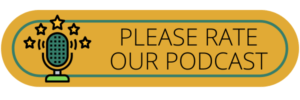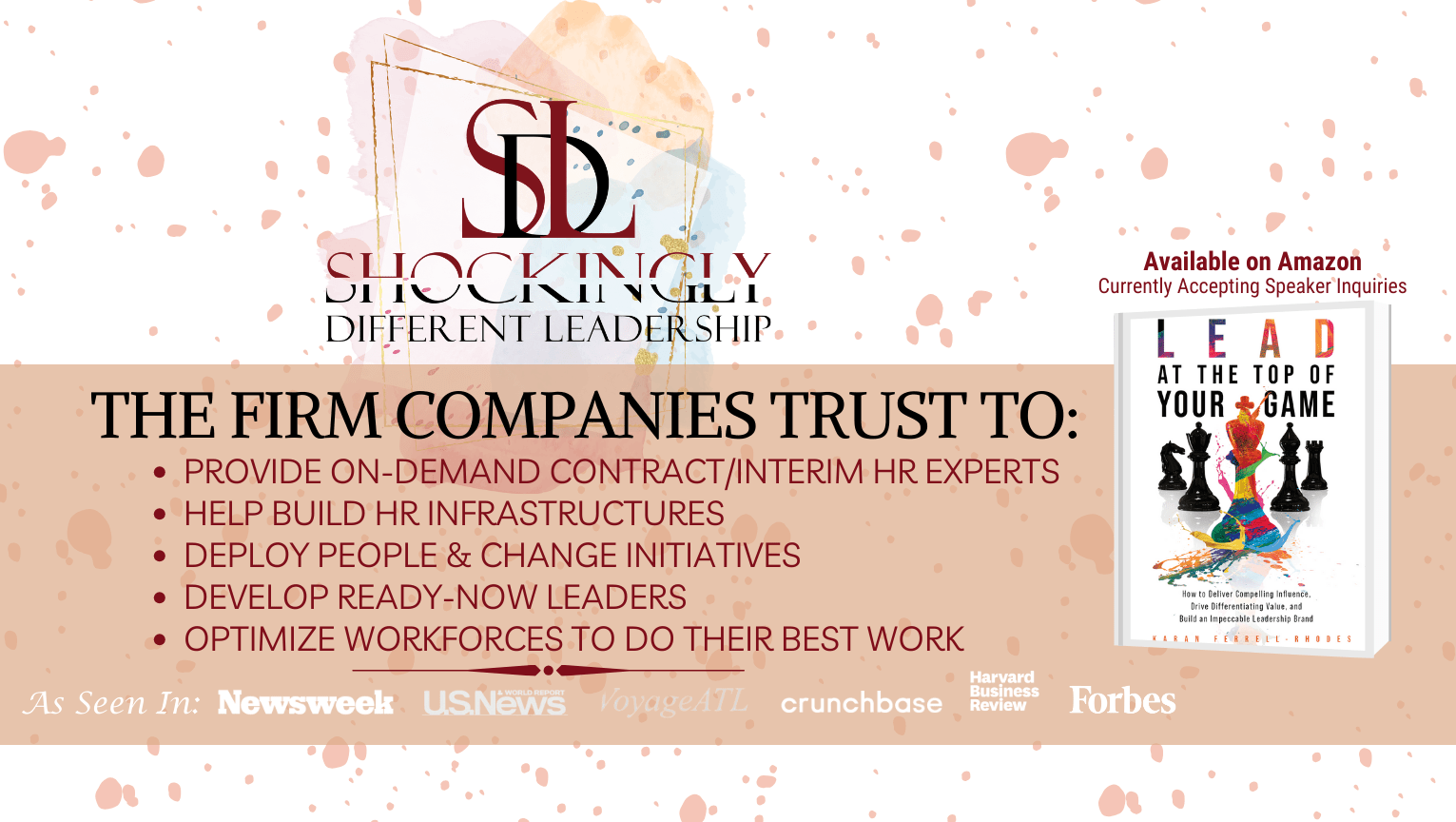IN THIS EPISODE, KARAN FERRELL-RHODES INTERVIEWS MOLLY BERAN.
Amidst the evolving landscape of blended workforces, integrating external project managers brings unparalleled flexibility and expertise, from managing data warehouse modernizations to orchestrating smooth transitions. This approach not only bridges gaps in internal communication but also enriches organizational efficiency, transforming temporary roles into lasting impacts.
Molly Beran, is the President & Founder of Projects By Molly, LLC. She transforms IT departments from planning to action. With expertise in project management coaching, training, and execution, she empowers organizations to overcome challenges and achieve exceptional results, turning ambitious goals into tangible progress and success.
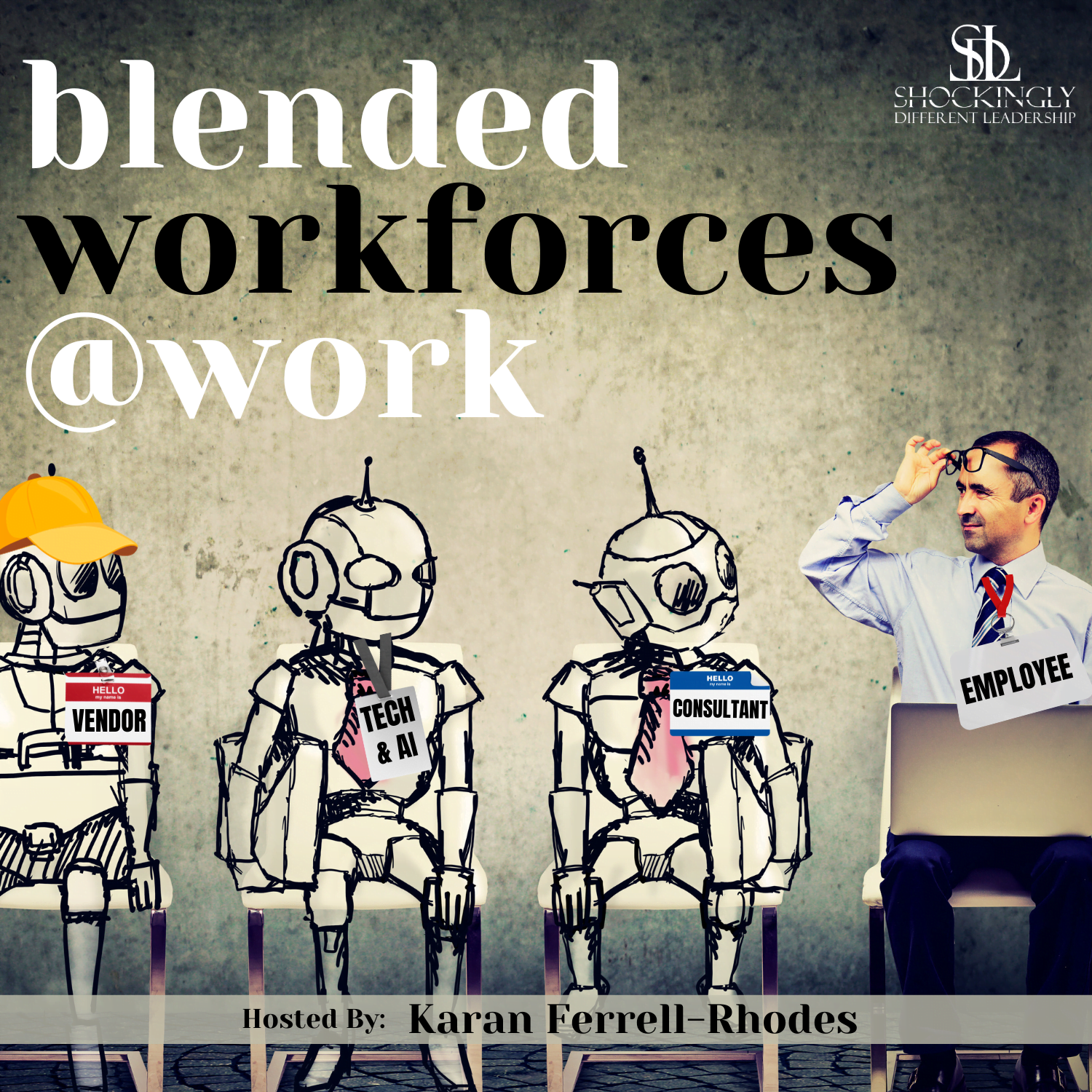
Posted by
SDL Media Team
Rather view our video podcast?

WHAT TO LISTEN FOR:
- What are the benefits of hiring a project management lead for a blended workforce?
- How can external consultants effectively integrate into a company’s existing team?
- What are the primary challenges faced by external consultants in project management?
- How can referrals and networking contribute to building a client base?
- How can companies overcome communication hurdles with external project managers?
- Why is it important for consultants to ask for the right tools and resources?
“The dirty little secret of project management is that it’s 90% about communication.”
FEATURED TIMESTAMPS:
[03:14] Molly’s Life Beyond Work
[04:14] Molly’s Journey and Expertise in Project Management
[09:57] Building the Client Base: The Power of Referrals and Networking
[11:12] Why Hire a Project Management Lead?
[14:07] The Challenges of Being an External Consultant
[16:00] How to Effectively Integrate as an External Consultant
[20:46] Signature Segment: Molly’s entry into the LATTOYG Playbook: Key Considerations Before Transitioning to Independent Consulting
[26:04] Future Plans for Projects By Molly
[29:27] Signature Segment: Molly’s LATTOYG Tactic of Choice: Leading with executive presence
[31:31] Connect with Molly

ABOUT MOLLY BERAN:
Molly Beran is a PMP®-certified project manager with over 20 years of experience managing projects and teams for clients, including Kaiser Permanente, Rush University Medical Center, the Ann & Robert H. Lurie Children’s Hospital of Chicago, and various financial and capital management firms. Blending her corporate training background with her experience in project management, Molly creates processes and systems that break down complex problems and provide simple solutions that teams use to get things done.
Molly also speaks at conferences and leads workshops in the US and internationally. Her topics include leadership, project management, performance management, and emotional intelligence.
LINKS FOR MOLLY:
- Website: projectsbymolly.com/
- Free Resource Library: projectsbymolly.com/resource-library
- LinkedIn: linkedin.com/in/mollyberan/
- Facebook: facebook.com/mlberan
- Instagram: instagram.com/mollyberan
- Twitter: twitter.com/mollyberan
ADDITIONAL RESOURCES FOR YOU:


Episode Sponsor
SDL is the go-to firm companies trust when needing to:
- supplement their in-house HR teams with contract or interim HR experts
- implement leadership development programs that demonstrate an immediate ROI and impact on the business

Episode 19 | Leveraging Project Managers as the Orchestra Conductors of Work with Molly Beran
Molly Beran 00:01
So for them, it was great, because I could come in, meet the teams, organize the teams really fully integrate within their system. I mean, they sent me a laptop. I was logging into their teams. I was using all of their systems, and really, you know, behaving as though I were an employee of theirs, but they didn’t have to pay me benefits, they didn’t have to pay me a bonus, and I didn’t have to work full time
Karan Rhodes 00:01
Blended workforces are one of the hottest talent strategies today, where employers are using a mix of traditional employees with external resources like independent contractors, coaches, consultants, vendors, and technology solutions, all in order to enhance competitiveness, ensure cost flexibility, and expedite business goals. But how are the successful companies infusing blended workforces into their business strategy? And what are the critical success factors and pitfalls to avoid during implementation? And on the flip side, what does it really take for suppliers to improve their chances of finding and landing contract opportunities? The devil is in the details, my friends! I’m your host, Karan Ferrell Rhodes, and it’s time to get smarter about Blended Workforces at Work! Hello, my superstars out there. This is Karen, and welcome to another episode of the blended workforces at work podcast. Boy do we have a treat of a guest on today’s show. We have someone that whose profession is very common and the corporate workplace in the area of project management, and project managers are in a ton of functions while she specializes in it, but works with others that she’ll tell you about in a moment. Really understanding how project managers can provide value to organizations is extremely important. So we want to welcome to today’s show Molly Beran, who is the president and founder of Projects by Molly, LLC, which is a project management firm that helps IT departments and others as needed, actually get things done. That’s kind of her tagline. Now, Molly is a certified PMP, which is a project manager with over 20 years of experience, although she doesn’t look a day over 10, but she and her team helps manage projects and teams for clients, including Casa permanente Rush University Medical Center, the Ann and Robert L Laurie Children’s Hospital of Chicago, and various other financial and capital management firms. So welcome to the show, Molly, we’re so happy to have you.
Molly Beran 02:17
Thank you so much for letting me come on the show. Karan. I really appreciate it?
Karan Rhodes 02:20
Oh, absolutely. I have a few friends that are subscribers, that are project management experts, and I know they’re going to eat this episode up and appreciate project managers such as yourself, and I can’t wait to delve into the work that you and your firm does, but before we do that, we always love to learn a little bit more about our guests. So for just as much as you feel comfortable, would you mind giving us a sneak peek into life outside of work for you?
Molly Beran 02:50
Absolutely well, sitting behind me here is a piano. So you might have guessed that I’m a musician at heart. I do play the piano a little bit. I’m also the lead singer in a cover band called Bumper Thieves. And I also sit on the governing board of the Looking Glass theater here in Chicago, which is where I’m based.
Karan Rhodes 03:09
Oh, interesting. Wow, boy, is your life dynamic.
Molly Beran 03:15
It’s a lot of music and a lot of shows. I love it.
Karan Rhodes 03:18
I love music. I play piano as well. I did not know that we both did. I used to play for about 15 years, and I played for, you know, church choir and for, like, special events, but don’t do it right now, but I do have a deep, deep love for music, so that’s definitely a love that both of us have. Very cool. Yeah, very cool. Well, thank you for sharing that, and let’s jump right in and start us off, Molly by sharing a little bit more about what your firm does and who it serves.
Molly Beran 03:49
Sure thing. So you nailed it. I say that I help IT departments actually get things done instead of just talking about it. And the majority of my clients are either an IT firm within a larger firm. So healthcare, I’ve worked with financial companies as well, and usually it would be within that IT division. Sometimes it’s for just, you know, blanket technology companies as well. And, you know, I also don’t discriminate. So if there is a team out there that needs help with project management, they don’t happen to be it. Of course, I will work with them, but given my background, I grew up in software and project management and some corporate training as well, yeah, all surrounding computer systems. So given that I have that type of a background, I find that I have a lot of things in common with IT departments. I get a lot of the internal struggles and external struggles that they have. So it’s a really great fit for me, and I will absolutely help others manage projects as needed as well. I’ve worked with design firms, marketing research firms, etc, as well.
Karan Rhodes 04:52
Wow. And please forgive me, because I only know a little bit of that, a little bit for project management. So of course, but I. Do know a ton about technology and technology firms, as I was at Microsoft for almost 14 years in various roles, and have always been a power user of technology, but I know, or I’m aware of very few project managers in the tech space where the engagement is only a day. It’s usually very intense, very expansive, and you really do need to have the right project manager that can build tight relationships with all the stakeholders. But I’d like for you to throw tomatoes at that observation. If I’m totally wrong, or your engagement is more shorter or longer in term.
Molly Beran 05:44
You know, it really varies depending on the project or suite of projects that folks bring in to help me, for me to help them manage, right So, and just for anybody who’s new to this term project management, what that means is that I come in and I help lead a team of people who are striving to get something done to fulfill a particular business purpose. So that could be as small as reorganizing a SharePoint site or as big as revitalizing a data warehouse, right? Either way, it’s never just me doing the work to get something done. It’s usually me coming in and then helping organize a team, helping that team stay on top of the work they need to do. And we’ve got a lot of strategies and tactics for doing that in project management, with how we break down work and organize and add deadlines and, you know, integrate with stakeholders, etc, sure, so you’re absolutely right that most project management engagements are not one day long in duration. So most projects are going to be somewhere between one month to six months, probably in duration, somewhere even longer. Again, it kind of depends on the client and the range of involvement that I have. Sometimes it’s really just to guide one or two projects along. Sometimes I get assigned a whole portfolio, and then other times, one of my favorite things to do is to provide maybe some day to day type project management work, but then to really help clients build systems to actually empower them to do project management long after I am gone. So helping people figure out how to build their own project plans. How to use that project plan to get work done, how to do reporting off of those project plans that can then roll up to executives boards, etc. So that’s really where my passion lies. And as you can believe that that usually takes more than a day.
Karan Rhodes 07:39
Yes, definitely.
Molly Beran 07:42
Now that said there’s one exception. One thing that I am starting to do that is more short term, is to do what I’m calling project success checks, where I will do some research in terms of a particular project. Maybe it’s stalling on the vine. Maybe people are just not getting things done, and we just don’t know why, I will come in and do some investigation, do some interviews, do some assessments of the tools in place, and then provide a set of recommendations. And that would be a shorter term project, again, usually still longer than one day, but you know, that could be a couple of weeks or less, you know, depending on the need and the complexity, but generally speaking, longer term engagements is more common with a project.
Karan Rhodes 08:26
Yeah, that makes a lot of sense. That makes a lot of sense. Now, are you a solopreneur, or do you have a few others on your bench to help you for the bigger project?
Molly Beran 08:35
I am a solopreneur right now, though. I do subcontract with a number of different firms as well. So I’m sort of a part of tangential teams, and I find that if and when I need more support, I can usually, you know, send out the bat signal and find the right person to help.
Karan Rhodes 08:53
Yeah, that makes a lot of sense. Well, good. I know that’s very important to have resources or a bench sometimes, for those of us that are on the vendor or consulting or supply side of the house, because you don’t want to say no to a great opportunity and a client engagement, but we all know when it’s going to take more than just us sometimes to manage it, so that’s great that you have connections. Now, how do you find your clients? How do you do you do a lot of marketing, and if so, in a particular area, or is it purely by networking word of mouth? How do you build your pipeline?
Molly Beran 09:32
I work mainly from referral basis. So most of my clients are people who either I’ve met before or who’ve referred me to people that they’ve met before. I would say that’s probably about 99% of my client base that said I do a fair amount of networking, especially online. I hold events where I bring folks together to do brainstorming sessions and well. Talk about, you know, issues in project management or decision making, etc, and occasionally those will lead to, you know, new contacts and and additional clients. But most of my business is referral based, and I do not do a lot of marketing beyond, you know, posts and sharing knowledge and things on on LinkedIn or social media, but nothing that I would consider advertising
Karan Rhodes 10:23
Gotcha. Makes sense. So I would love to hear, in your opinion, I know that you understand the power of blended workforces, but in your opinion, why is a project manager? Project Management lead a greater ideal role to bring in that companies can bring into their organization as part of their blended workforce.
Molly Beran 10:47
So I think bringing in an outside project manager is beneficial in a lot of different scenarios, one of which I recently finished up working with a capital management firm. And they are very efficient. They are lean on purpose, and their business is managing capital, right? So they want to focus on making trades, doing deals, etc and so forth. They do not want to have to staff a humongous workforce of project managers to oversee the work that’s getting done. So I was able to come in and project manage a data warehouse modernization project where we took on premises servers, and we wound up moving the analytical layer into a managed instance on Azure. So that was really hard project, something they’d been talking about doing for years. They did not want to pay someone for a full time salary to do what amounted to part time work. It was just very long, right? So that one took about three months of planning and then about a year of work, all told, in order to get that project to completion. So for them, it was great, because I could come in, meet the teams, organize the teams really fully integrate within their system. I mean, they sent me a laptop. I was logging into their teams. I was using all of their systems, and really, you know, behaving as though I were an employee of theirs, but they didn’t have to pay me benefits, they didn’t have to pay me a bonus, and I didn’t have to work full time at the time. I was actually in the process of planning my wedding, getting married, taking a honeymoon, yes, about a year now…was very happy.
Karan Rhodes 12:31
Congratulations.
Molly Beran 12:33
Thank you. So you know for me, it really created a great system where I could work exactly the amount that I wanted to, but also have the freedom to do these things that were happening in my life and to dedicate that time. So the great thing is, too now the project’s over, and I can Peace out, no hard feelings. Sometimes when you have a permanent project manager, not that I would dissuade it. I think there are times and instances where that makes sense. If they don’t have a project, they can be a little lost, right? Or maybe they’ll go on vacation, but then they get back and what are they going to do, right, if your firm isn’t at a place where you’ve got that route, that stack up of work for the project manager to keep going and keep going and keep going. It’s really nice to be able to just bring somebody in and approach it from a blended perspective, because then you don’t have to staff them for the long term.
Karan Rhodes 13:25
Yeah, that makes a ton of sense. And I’m curious, in your opinion, what are some of the dark sides of being a external consultant, project manager or someone part of the external workforce when you’re going into companies?
Molly Beran 13:42
Yeah, the dark sides… First of all, I think there is a mitigation for all of them that I’m about to name, so I don’t want to discourage anyone from doing it, sure, but you know the hurdles that I faced when you are not an embedded employee, there are naturally going to be conversations that happen that you’re not a part of, and so you have to get really good at listening around and picking up on cues and getting a hint that something has happened, and maybe you don’t know what it is, and project management, by nature, attracts a lot of people who for if we’re talking about a spectrum here between like easy breezy to total control freak, we are all much closer to the control freak side of the spectrum than the Easy breezy. So that can be really difficult for a person who naturally falls into organization, putting things in order, you know, bringing order to chaos, all those things that are our jams as project managers. Yeah, that can be really hard to negotiate, but it’s also completely doable. And I think if you approach any situation with a presumption of goodwill that you know people aren’t excluding you on purpose meetings happen, and then also recognizing that sometimes you’re going to be having the meeting that somebody else doesn’t know about, right? So the dirty little secret of project management is that it’s 90% about communication that’s not going to change whether you’re embedded or not. So you. Always going to kind of have to root around for the details and investigate what might have happened if you were not exactly in that room or even that virtual space, simply by virtue of the fact that you’re not an employee.
Karan Rhodes 15:11
Now I’m curious as well. Have you found companies onboarding you appropriately, or have you learned that you’ve got to take the bull by the horns and really ask for things and tools that you need to best integrate with the teams you’re supporting?
Molly Beran 15:29
Yes! It really varies by the organization and their complexity.
Karan Rhodes 15:39
Yeah,
Molly Beran 15:39
The organizations that are used to bringing in outside consultants are usually pretty good about it. They they send a laptop, or they set up an account for you to log into their online web portal. And you know, mostly the tools that I’m using every day as a project manager are kind of standard, especially if you’re a Microsoft shop. We got our teams, we’ve got our Microsoft Planner or maybe project. If you’ve got your office 365 license, you’re pretty good to go. But then, you know, when you walk into a smaller firm, especially if they don’t have a dedicated IT team, you’ve got to know what you need, what you want, and what to ask, for sure. So I always try to show up with, you know, my checklist of, here’s the things that I know I need. And then, before I start, I like to have that conversation with whoever it is that’s hiring me. Hey, who do I talk to about getting word, or Vizio or, you know, whatever it is that might be substandard from their normal setup, or that they just might not, you know, if this is the first time a company has been growing and they need someone to come in and help, you know, bring order to chaos. They might have never created an account for someone who doesn’t work there. True, right? Absolutely. So understanding, you know, do I need an email account? Yes or No. Do I need a Microsoft license? Yes or No. Do I need, you know, what other tools might I need? Are we doing some Power BI reporting, right? So really, getting that list up front, I think, is critical. And you know, most of the clients that I have worked with are perfectly willing to give you whatever access you need, especially if you’ve got it approved, if you’ve got good reasons, if it’s in their technology stack already, you just need to know to ask. And I think that’s a really important thing. Consultants sometimes have this idea that they’re there to be the answer of the questions and that they can’t ask questions that I think leads you down a dead end road most of the time. So
Karan Rhodes 17:36
Right.
Molly Beran 17:37
I like to know what questions I need to ask.
Karan Rhodes 17:39
Absolutely and I’m, you can tell I’m not a shy gal, so I’m one that takes initiative, and I pepper them with ask for permission first, pepper them with questions. But I do to better understand kind of what the setup is. I really mostly consult on the people side of business. So it’s you know, really better understanding the company culture and what’s going on and what they prior prioritize in their strategic plans and things like that. So I personally love to get as much information as I can so that I can factor that into my approach, in any ultimate recommendations or options that I want to present, and I’m assuming you probably do something similar in your area.
Molly Beran 18:26
Absolutely. I mean, knowing what you need to ask for, I think, is half the battle,
Karan Rhodes 18:30
Yeah,
Molly Beran 18:31
Especially if you’re an independent consultant, and I would say especially if you are entering a company as a project manager, and nobody there has seen a project manager before or worked with a project manager before. You know, you really need to be prepared to ask questions and to do some teaching and to help explain. What is the value of having one person coordinate everything? What is the value in having one person who is keeping in close contact with your leaders and bringing them along and doing communications, etc and so forth, right? So, really being prepared from day one with, what do I need to ask? What do I need to answer? And, you know, what do I need to teach? I think are some really core considerations,
Karan Rhodes 19:16
Absolutely, definitely. Now, even I always talk about how just because you were in corporate at a time where you worked at a business does not always mean that starting your own firm is going to be the right thing for you. You might have been a great within an entity that had its own structure, but wearing the entrepreneur hat is quite different, because you are it. You wear multitude of hats, coffee maker, worker bee, a sales person, you name it. So in your experience, it seems like it’s one. Worked out well for you. But in your experience, what are maybe one or two things that someone who is thinking about moving over to being on the independent side that they should consider before they dive fully in to trying to start their business? What are some things to think about or make sure that they’re comfortable with?
Molly Beran 20:21
I think one of the first things to do is to really assess how comfortable are you with economic instability. There you go. Yes. Whenever you start a new venture, there is no guarantee that you will be profitable. There is no guarantee that you will get new clients, or that you will make sales. And so I can’t sit here and tell everyone a magic number, but I think it’s really important for folks who want to do this to think through what is an amount of money that I need to have in the bank to make it through, however long you’re willing to invest in this endeavor, whether that’s three months or six months or 12 months, or what have you. And then very few of us are just single gals out here starting a business. I happened to be a single at the time I started mine, but you know now I would need to be asking that question, not just for me myself, but for me and my husband. What can we afford, and what type of economic risk are we willing to take on?
Karan Rhodes 21:25
Absolutely.
Molly Beran 21:26
And you know, that’s not to say don’t do it, because for me, the freedom and the autonomy have been well worth the price of that economic instability. And you know, you give yourself enough time and you hone your offerings, you’re gonna be able to turn that around? Yeah, pretty quick.
Karan Rhodes 21:45
Very quick.
Molly Beran 21:45
probably. Yeah. So at the same time, though, it’s really important to know what can you And can’t you stomach right? If, if going out into the marketplace for insurance is not going to work because of a medical condition that you have, or a particular provider or drug or something that you need, you should really look at that ahead of time, yes, and really understand all of those implications for yourself and your family and your finances.
Karan Rhodes 22:14
I agree some virtually high fiving you because it it is definitely something to consider when I made the leap. I did a lot. I’m a voracious reader and researcher anyway, and that was something a lot of people had emphasized, and it’s different for everybody, just like you said about how much financial risk tolerance you have. But I will, you know, share that I was married, my husband and I sat down, we created a plan of action. We found out what was the where, what we needed to live comfortably, and we both didn’t leave corporate America at the same time, we both had aspirations of starting businesses, but, you know, we we made some decisions, and we paid down or paid off almost all of our debt, except for our mortgage.
Molly Beran 23:06
Congratulations. That’s huge.
Karan Rhodes 23:09
I mean, huge, you know, just that freedom to not be pestered by car payments, or, you know, you name it, other than your monthlies, gives you the space and understanding what it will take to keep your household at a comfortable level. And you know, we had kids as well, those are some significant decisions. And to your point, if there’s some factor or external thing that you need to plan for, you might need to plan for that first before you just take that late, right? Because you don’t want to. I had another friend who had a very serious medical condition that needed ongoing care, and the medicines were astronomical, which were largely covered under her employer’s health care, but not when as an independent person. And so that was something that she had to factor in. And she actually ended up not starting her own firm because she needed that coverage. So I love that you said that and talked about the financial risk piece of it.
Molly Beran 24:12
Yeah, absolutely. And I found out that we have something else in common, which is my husband also owns his own business, also a project and program manager, funnily enough, specializing
Karan Rhodes 24:25
So you’re not under the same umbrella.
Molly Beran 24:28
He started his company many years ago, six or seven years ago, and you know, he’s got his portfolio of clients, and I’ve got mine, but we, you know, even just this week, I was helping him tweak some dashboards and thinking through some stakeholder conversations. That’s just our dinner time chats.
Karan Rhodes 24:48
I bet your dinner time chats are fascinating. My husband, I are talking about sports. I’m a sports fanatic, and he thought that was so cool to have a wife that loves sports. That’s what our dinner conversations for. Quickly circle around you all get to talk about dashboards and sexy talk. Oh, goodness. Well, also, I know it is your ideal client, but to your point, project management is in a lot of different spaces, and I would be remiss if I didn’t ask you know, how do you picture your firm growing, maybe in the next or do you want to grow in the next 12 to 18 months? Are there different industries you like to dip your toe into? Or are you good with your steady eddie clients as is?
Molly Beran 25:39
I mean, who wouldn’t want more clients, right?
Karan Rhodes 25:42
Sure,
Molly Beran 25:43
I will say that I have taken a particular shining to finance working with a capital management firm that were based in Manhattan. I kind of loved how fast paced everything was, and I find the world of finance to be fascinating. So I would absolutely love to be connected to more, even IT departments within financial firms or other departments. And then, you know, dipping back to my earlier career days, I started off working at a medical record software company called Epic, and I worked at a hospital for a while as well. So, you know, healthcare, it is a space where I’m very comfortable, and I do have a lot of contacts. So you know, would love to make connections with other firms in that space as well. And you know, there’s the musician wild card side of me too. So you know, who knows arts organizations, they’ve got it right,
Karan Rhodes 26:39
Of course. You know what I could I don’t know. I’m also a movie fanatic, and I don’t know if you ever saw the movie up in the air, up. It was with George Clooney. Oh yeah. And anyway, he and the lady he was dating. She was married, but he was date. They were dating. They crashed the event, and they had a famous musician that was playing, and everybody was dancing and what have you. So I think I can market you for big corporations at their annual retreats, and you and your cover band. I love it. Get them. You get them as people, as tech people, and then you get there with the music. So,
Molly Beran 27:22
I mean, we’ll do our own setup. It’ll be great
Karan Rhodes 27:25
Everything, I tell you. And I won’t even charge the standard 20% I only need eight, so give me eight.
Molly Beran 27:33
You can have front row tickets.
Karan Rhodes 27:34
Oh, I love that. Well, gosh, Molly, time has really, really gone so quickly, but we can’t let you go before we ask our guests our signature question. And as you know, I wrote a book on research that our firm did on leadership execution, and we always love to ask our guests which one of the approaches or tactics really resonated with them. And so you were so kind to share that executive presence really hit home for you and for my listeners, new listeners out there, all the seven buckets of areas that we talk about and teach about are all equally as important. You just use them at different times when you’re leading whatever effort you’re leading, whether you’re leading your family at home, or you’re in corporate or own your own business, whatever the spaces that you are leading in your day to day lives, it’s fine, but Molly, you were so kind to say executive presence resonated with you, and the way we define executive presence is the ability to make clear and convincing position statements or arguments, whether they be verbal or oral, in order to convince others to a course of action or to follow your lead. So it’s basically about getting your ideas in out there in a way that influences the support of others. And so curious minds want to know why executive presence really resonated with you?
Molly Beran 29:03
Well, a couple of things came up for me about executive presence. The first one, I was working on a presentation earlier today. Part of what I do is also some corporate speaking and education. And it hit me that a good part of training is not just explaining what something is, but helping the audience see the value in it, yes, and start to use it. This particular topic I was talking about was emotional intelligence and just thinking about how, like, you know, selling that to people. Your emotions are important. You can use them to make decisions. This is, like, a really important thing that we can use and leverage and further our own leadership every day. So that was something that came up for me. And then I was also just thinking about, you know, the virtual world we’re all living in right now with LinkedIn and other social media, and how, you know, the people that I. I really like to follow and listen to are doing exactly what you’re saying with executive presence is, you know, it’s, it doesn’t even have to be in person presence now. And I think that was something that hadn’t really occurred to me in the past. I’d always thought exec, you know, in the boardroom, in front of a group, etc, so forth, thinking like that actually does apply virtually too, yeah, you know, and really bringing others along with your ideas.
Karan Rhodes 30:23
That’s right, that’s how the whole influencer industry got launched, training virtually, talking about a topic they’re passionate about, bringing in data, facts and building a community around what they’re talking about. So absolutely, well, wonderful. Well, thank you so much for sharing and being game to share your thoughts on that. Well, Molly, I know we’re gonna have a lot of information about you in our show notes, your bio links and what have you, but I always love to give our guests air time to share with our listeners where they can find you. Should they like to connect? So can you please share Absolutely.
Molly Beran 31:07
I’m on LinkedIn at Molly Barron, M, O, L, L, Y, B, E, R, A, N, and you can also find me at www.projectsbymolly.com
Karan Rhodes 31:17
Very easy to remember. Projectsbymolly.com Awesome.
Molly Beran 31:21
Right.
Karan Rhodes 31:22
Well, thank you, Molly again, for the gift of your time and perspectives and sharing your thoughts on project management as one of the pieces in blended workforces. It’s a very popular piece. I should say it’s very widespread that a lot of companies do use project managers in a different variety of ways, and that’s why we have this podcast, just to share different views and different experiences so individuals can learn more about the power of this talent tactic. So thank you so much for coming on the show.
Molly Beran 31:53
Thank you so much for having me.
Karan Rhodes 31:54
It was great, awesome, and thank you to listeners for the gift of your time, because, as you know, we know you have literally millions of other podcasts you could be listening to. We don’t take your patronage lightly. All we ask is that you like and subscribe and share the podcast with just one friend, because by doing so, we all can get smarter about blended workforces at work. Thanks a ton. And see you next week. Bye, bye. Well, that’s our show for today. Thank you again for listening to the Blended Workforces at Work podcast. You can check out the show notes, additional episodes, bonus resources, and also submit guest recommendations on our website at blendedworkforces@work.com. You can also follow me on Twitter, LinkedIn, Instagram or YouTube by searching for the name Karan Rhodes with Karan being spelled K a r a n. And if you like the show, the greatest gift you can give would be to subscribe and leave a rating on your favorite podcast platform of choice. This podcast has been a production of Shockingly Different Leadership, a global consultancy which helps organizations execute their people, talent development, and organizational effectiveness initiatives on an on-demand, contract, fractional, or project basis. Huge thanks to the SDL production and editing team for a job well done. Bye for now.

Want to be a Podcast Guest?
Check out our guest qualifications and submit our brief form to be considered.
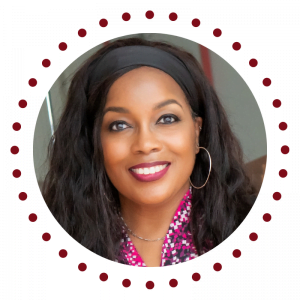
Want Karan to be Your Podcast Guest?
- Blended Workforces & the Gig Economy
- Critical Execution Tactics of High-performing Leaders
- Entrepreneurism & Leading Your Business

Want to be a Podcast Sponsor?
All sponsorships come with a featured spot on show notes pages.
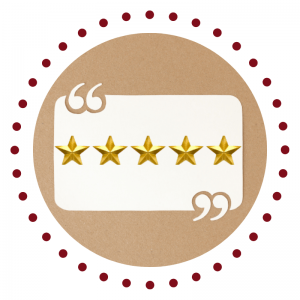
Like the Show? Please Leave a Review
If you like the show, it would mean the world to her if you left a quick review.
Your word is golden, so a HUGE thank you in advance!

#KeepInTouch
via our podcast alerts
Subscribe now to discover why thousands of monthly listeners who are passionate about doing their best work prioritize time each week to listen to the Blended Workforces @Work podcast.
#AboutSDL
#WhereToFindUs
MAILING
4480-H South Cobb Drive
PMB 219
Smyrna, GA 30080
PHYSICAL
2121 NewMarket Parkway
Ste. 108
Marietta, GA 30067
#ContactOptions
Customer Service Email:
service@shockinglydifferent.com
Call or Text:
770-384-1103
#Office Hours
MON-FRI
8:30 AM – 6:30 PM
Weekends By Appointment


